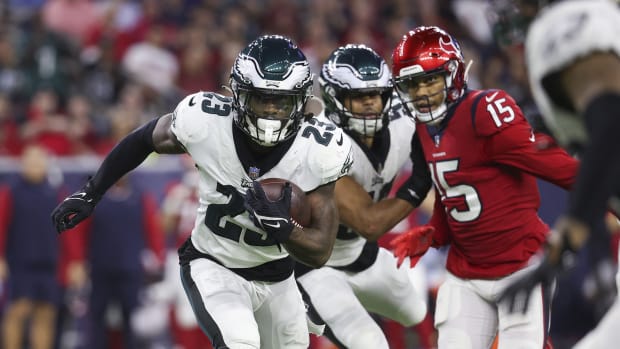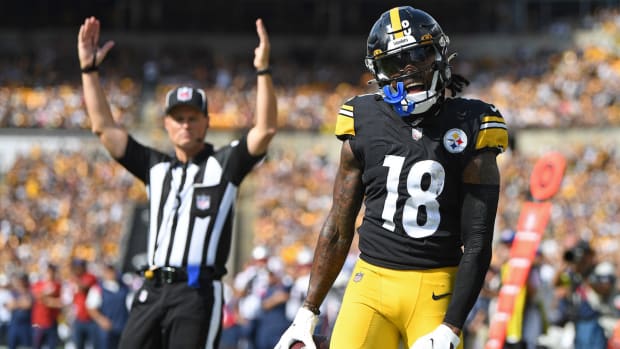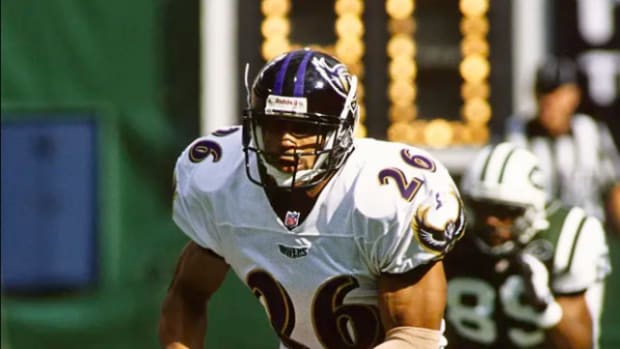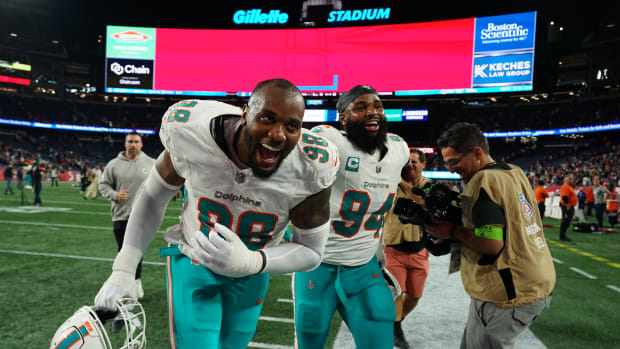In Praise Of ... Defense
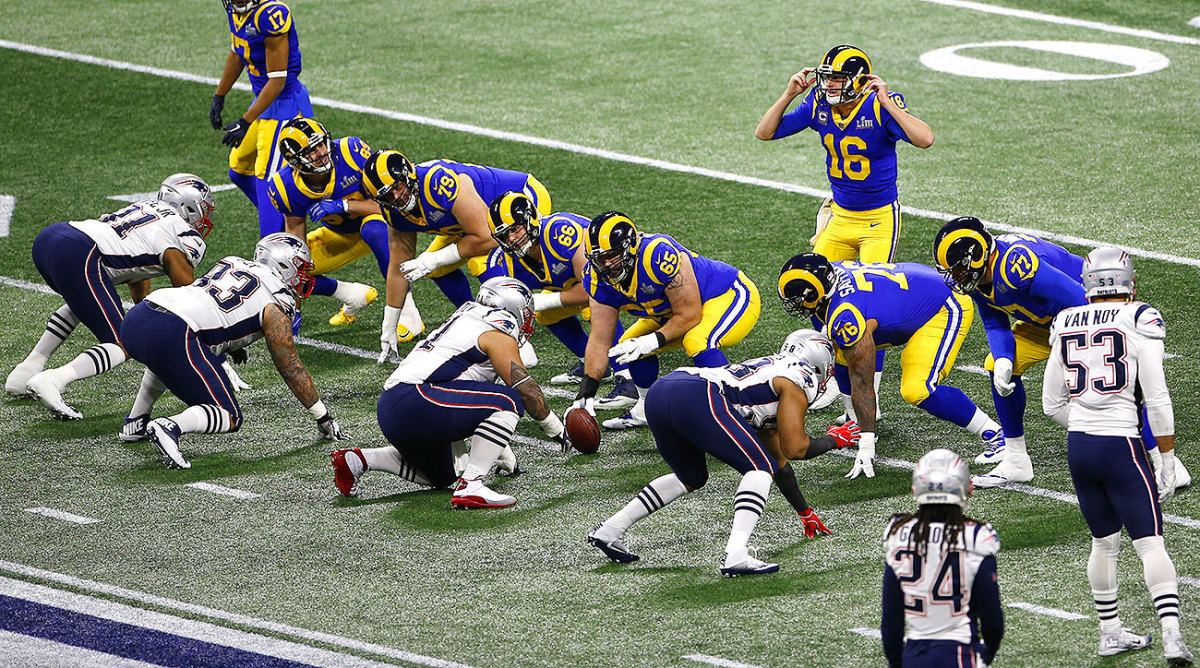
After a week of bad takes, it’s time to feel good about football! This week on The MMQB, our writers and editors are taking time to praise what they like most about the NFL. Agree or disagree with the praise? Send us an email at talkback@themmqb.com.
When the Rams beat the Chiefs, 54-51, on Monday Night Football in November, many saw it as the pinnacle of the 2018 season. Fourteen incredible touchdowns! More than passing 400 yards for both QBs! The high-octane game that saved the NFL!
Me? I prefer the 13–3 slugfest played in Atlanta on Feb. 3.
No, this is not still Bad Takes Week. As a follow-up to that, we were asked to write in earnest praise of something we love about the NFL. And, I love defense. This is in spite of all the rules designed to favor the offense—or, perhaps, because of them. When NFL teams play good defense today, it means even more, because it’s almost anachronistic.
As the 2018 season barreled ahead, with the most touchdowns scored in a single season in league history, I kept waiting for the defensive counterpunch. “Defense is play recognition,” Rams defensive coordinator Wade Phillips said one afternoon in December, and so I eagerly anticipated all these jet motions and surface-level misdirection tactics reaching the point of saturation where defenders were no longer fooled. Then, on the final day of the season, we got our sweet reward.
The Patriots’ post-Super Bowl LIII locker room was one of the most interesting in recent memory—barring, of course, the one in which Tom Brady had his jersey snatched—in hearing players and coaches explain how they held a Rams offense that had averaged nearly 33 points per game during the regular season to a grand total of three. The Patriots, a heavy man coverage team for most of the season, used a cover-4 (quarters) match-up zone coverage on first and second downs, a way to neutralize the in-breaking routes off play-action as well as the shifts and motions off of which the Rams offense had thrived last season. Up front, the Patriots played two linebackers on the line of scrimmage in a six-man front, putting them in position to either close off the Rams’ outside zone-running lanes or disrupt the receivers lined up in tight splits.
In the days following Super Bowl LIII, my mother relayed that she had taken exception to other patrons at her gym lamenting that the game was boring. “They must not like defense!” she remarked. (Our Andy Benoit concurs with my mom and me.)
Perhaps this love of defense is a byproduct of growing up in State College, Penn., home of Linebacker U. While writing for The Daily Collegian my junior year at Penn State, I covered the infamous 6–4 loss to Iowa. In this barnburner, Kirk Ferentz purposely had his team take a safety midway through the fourth quarter. He chose to cut his team’s lead in half (from four points to two), avoiding the risk of a blocked punt and believing that if Penn State got the ball back in its own territory after the free kick, it would not be able to score (He was right). To be fair, this game was more about offensive ineptitude than defensive dominance, but you can see why 13–3 would be a scoring bonanza by comparison.
The first Super Bowl I witnessed in person was 42, between the Giants and the Patriots, when—aside from the helmet catch—the game was won by the “Four Aces” package, featuring four pass rushers on the defensive line, dreamed up by defensive coordinator Steve Spagnuolo. Later, I covered Rex Ryan’s Jets, whose 2009 and ’10 defenses were a weekly brainteaser for those of us trying to predict and decipher what the game plan would be. Darrelle Revis’s ability to stifle the opposition’s No. 1 receiver week-in and week-out, in most cases with no help over the top, will remain one of the most impressive individual performances I’ve ever seen.
Years of rule changes favoring the offense, in particular the QB, and the trickle up of college-style offenses that have reimagined how space is used on the field have presented new hurdles toward playing good defense. A game dominated by defense these days feels more and more like a novelty—like your friend with food allergies being able to find gluten-free and dairy-free black-and-white cookies at a bakery on the Upper West Side. But what I appreciate most about defense is how hard it has always been. The offense knows where everyone needs to be on the field on each play, and where the ball is going, and spends each week rehearsing that. The defense can script nothing; it spends the week practicing a counter-strategy for the strategy they think the offense will employ. If one out of 11 players on offense misses his assignment, the result more often than not is a failed play. On defense, a missed assignment can very likely mean points for the opponent.
In conclusion, I will point out that when the two greatest coaches of our time, Bill Belichick and Nick Saban, snuck away to West Point in the late 80s to “talk some ball,” they were talking about defense. Here’s to incomplete passes, and tackles for loss, and games featuring a single touchdown. Maybe 2019 will be the Year of the Defense. We should all be so lucky.
Question or comment? Email us at talkback@themmqb.com.

































